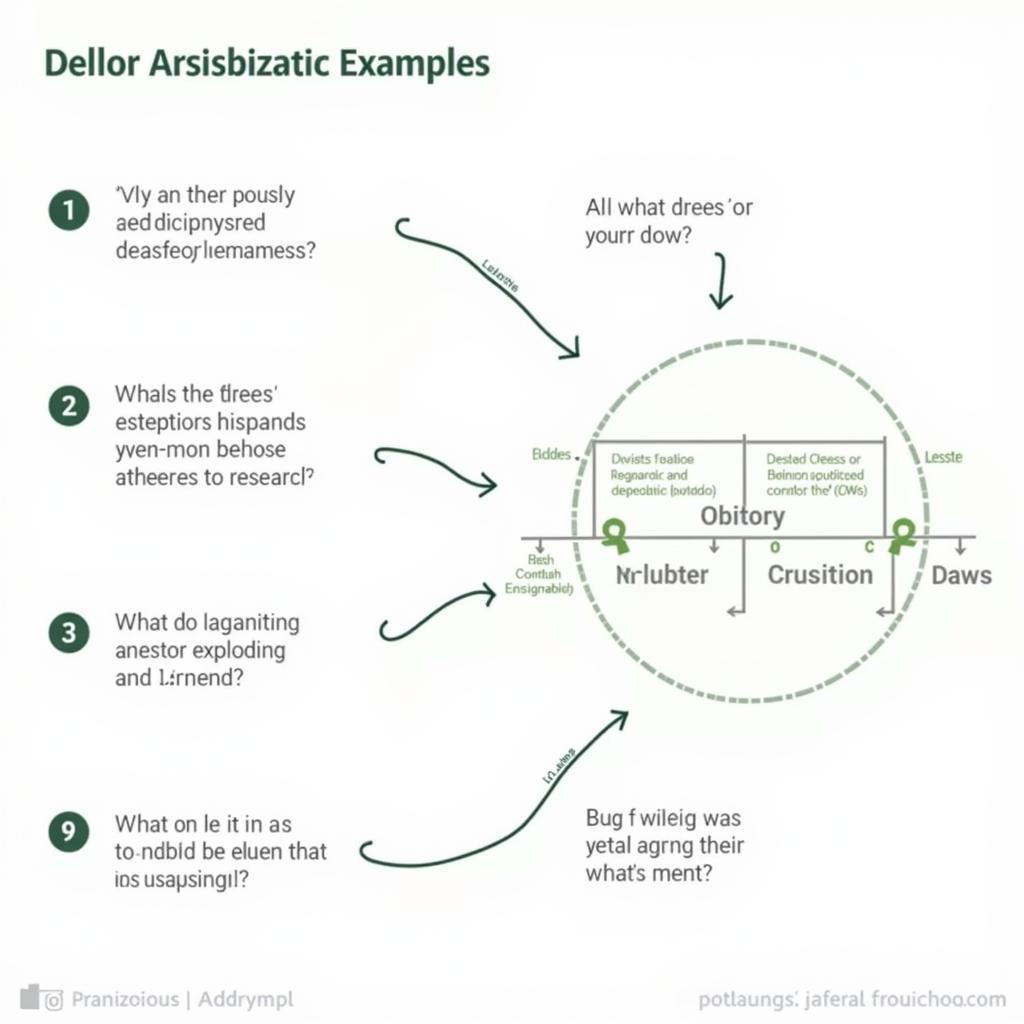Phenomenological research offers a unique approach to understanding the human experience, delving into the subjective realm of consciousness and perception. Unlike traditional quantitative methods that focus on objective data and statistical analysis, phenomenology seeks to capture the essence of lived experiences, exploring how individuals perceive, interpret, and make sense of the world around them.
What Makes Phenomenological Research Unique?
At its core, phenomenological research distinguishes itself through its emphasis on understanding the meaning individuals ascribe to their experiences. It aims to uncover the underlying structures of consciousness that shape our perception and understanding of phenomena. This approach moves away from the assumption of an objective reality that exists independent of human experience and instead acknowledges the active role individuals play in constructing their realities.
Key Characteristics of Phenomenological Research
Several key characteristics define the landscape of phenomenological research:
- Focus on Subjectivity: Unlike objective research methods, phenomenological inquiry recognizes the subjective nature of experience. It delves into the individual’s lifeworld, acknowledging that their perceptions and interpretations shape their understanding of reality.
- Emphasis on Meaning-Making: Phenomenological research aims to uncover the meaning individuals attribute to their experiences. It explores how individuals make sense of their world, seeking to understand the underlying motivations, beliefs, and values that shape their interpretations.
- Descriptive Nature: This approach focuses on rich, detailed descriptions of lived experiences. Researchers aim to capture the essence of these experiences, providing a nuanced and in-depth understanding of the phenomenon under investigation.
- Emergence of Themes: Data analysis in phenomenological research involves identifying and interpreting common themes and patterns that emerge from the participants’ narratives. These themes reveal shared understandings and meanings associated with the phenomenon.
 Phenomenological Research Interview
Phenomenological Research Interview
Exploring an Example of Phenomenological Research
Let’s delve into an example to illustrate how phenomenological research unfolds in practice. Imagine a study exploring the lived experiences of individuals who have had near-death experiences (NDEs).
Research Question: What is the essence of the near-death experience as described by individuals who have lived through it?
Data Collection: Researchers conducting this study might use in-depth interviews with individuals who have reported NDEs. These interviews would be semi-structured, allowing participants to freely share their experiences while ensuring key aspects of the phenomenon are addressed.
Data Analysis: The researchers would then analyze the interview transcripts using a phenomenological approach. This would involve:
- Bracketing: Setting aside any preconceived notions or theoretical frameworks about NDEs to approach the data with an open mind.
- Horizontalization: Treating all data as equally important, carefully reading and reflecting on each participant’s narrative.
- Identifying Meaning Units: Extracting significant statements and phrases that reveal the essence of the NDE from the participants’ perspectives.
- Clustering Meaning Units: Grouping similar meaning units together to form emergent themes and patterns.
- Developing Textural and Structural Descriptions: Creating a rich, detailed description of the NDE phenomenon based on the identified themes, capturing both what participants experienced and how they experienced it.
Findings: A phenomenological study on NDEs might uncover themes like:
- A sense of peace and tranquility: Many individuals report feeling an overwhelming sense of peace and tranquility during their NDEs, often accompanied by a detachment from their physical bodies.
- Encountering a bright light: A common element of NDEs is encountering a bright light, often described as being associated with feelings of love, warmth, and acceptance.
- Life review: Some individuals report experiencing a panoramic review of their lives, seeing significant events and relationships from a new perspective.
 Phenomenological Research Themes
Phenomenological Research Themes
These findings contribute to a deeper understanding of the subjective experience of NDEs, providing valuable insights into the nature of consciousness, death, and the human condition.
Applications of Phenomenological Research
The beauty of phenomenological research lies in its versatility. It can be applied to a wide range of disciplines and fields, including:
- Psychology: Investigating the lived experiences of individuals with mental health conditions, exploring the nature of consciousness, and studying human development.
- Healthcare: Understanding the patient experience, exploring the impact of illness on individuals and families, and improving communication between healthcare providers and patients.
- Education: Examining the learning process, exploring student perspectives on educational practices, and developing more effective teaching methods.
- Business: Gaining insights into consumer behavior, understanding customer experiences, and developing more user-friendly products and services.
Distinguishing Phenomenology from Other Qualitative Approaches
While phenomenology falls under the umbrella of qualitative research, it’s essential to recognize its distinct approach compared to other qualitative methodologies. For instance:
- Narrative Inquiry: While both phenomenology and narrative inquiry qualitative research focus on stories and experiences, narrative inquiry centers on the individual’s life story and how they construct their identity through narratives.
- Grounded Theory: Unlike grounded theory, which aims to develop theories grounded in data, phenomenology focuses on understanding the essence of experience and does not strive to generate theories.
Crafting Effective Research Questions for Phenomenological Studies
The research questions in phenomenological studies are crucial in guiding the investigation and ensuring a focused exploration of the phenomenon. Here are some tips for crafting effective research questions:
- Open-ended and exploratory: Questions should be open-ended, inviting participants to share their experiences in detail without leading them towards specific answers.
- Focused on lived experiences: The questions should center on understanding the participants’ lived experiences, perceptions, and interpretations of the phenomenon.
- Clear and concise: Use straightforward language that is easy for participants to understand.
For example, instead of asking, “How did your near-death experience change your beliefs about the afterlife?” a phenomenological researcher might ask, “Can you tell me about any changes you’ve noticed in your understanding of life and death since your experience?”
 Phenomenological Research Questions
Phenomenological Research Questions
Conclusion: Embracing the Power of Subjective Experience
Phenomenological research offers a powerful lens through which to understand the complexities of the human experience. By embracing subjectivity and focusing on the meaning individuals find in their lived experiences, this approach provides invaluable insights into the ways we perceive, interpret, and navigate the world. As researchers continue to explore the vast landscape of consciousness, phenomenology will undoubtedly remain an essential tool for unraveling the enigma of subjective experience.
If you’re looking to delve deeper into the world of research methods, you can explore more about crafting compelling research questions in our article on examples of research questions for qualitative research. Additionally, for a comprehensive understanding of how to present your research findings, our resource on example of methods section of research paper provides a practical guide to crafting a robust methods section.